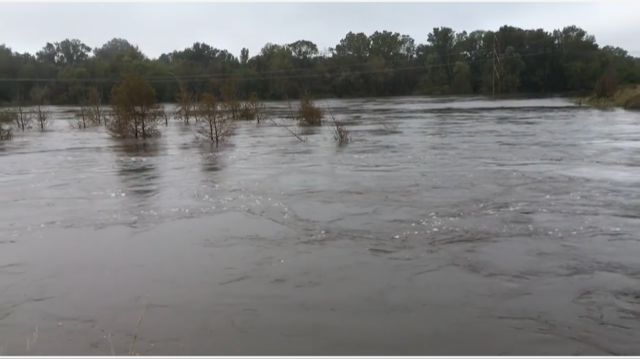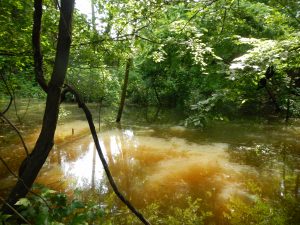Humphrey, C, Iverson G*, Skibiel C*, Sanderford C* and Blackmon J (2019). Geochemistry of Flood Waters from the Tar River, North Carolina Associated with Hurricane Matthew. Resources 8(48):1-12. doi:10.3390
Hurricane Matthew caused flooding in Eastern North Carolina that was categorized as a one in 500-year frequency event. Matthew was the second such event in less than 20 years, following Hurricane Floyd in 1999. The frequency of intense storms is projected to increase for many coastal areas, including North Carolina, because of climate change. The goal of this study was to gain a better insight into the geochemistry of flood waters associated with major flood events. Water samples (n = 22) from the Tar River in Greenville, North Carolina were collected over a two-week period after Matthew moved across the state. Results show that total Kjeldahl nitrogen, dissolved organic carbon, phosphate, and Escherichia coli concentrations and exports were significantly (p < 0.05) higher when the river was above flood stage relative to below. Isotopic analyses of δ15 N and δ18 O in NO3 in flood waters suggest that wastewater, possibly from sanitary sewer and confined animal feeding operation overflows, was the major source of nitrate associated with flood waters. Regulatory efforts to reduce nutrient loading to coastal waters may be complicated by contributions associated with intense storm events, given that such storms are becoming more frequent.
*Guy Iverson is current doctor candidate in the Coastal Resources Management Program. Caitlin Skibiel is a current doctoral student in the Doctor of Public Health (DrPH) [Environmental and Occupational Health (EOH) Concentration] Program. Christa Sanderford and Jamil Blackmon are alumni of our MS Environmental Health program.
Photo source: The News and Observer



